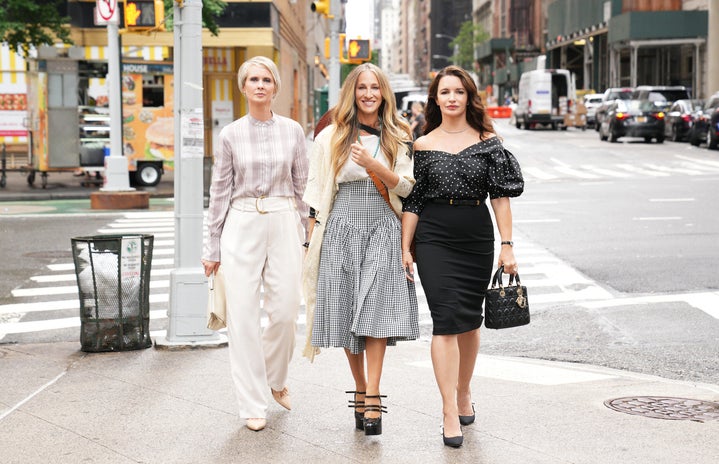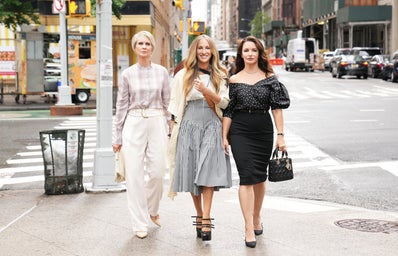Author’s note: This article includes spoilers!
HBO’s Sex and The City captured the social landscape of the late 90’s. The show broke barriers for women on TV and encapsulated the optimistic feeling of the era before the new millennium. Given the critical reviews that have surged about the show through the years, audiences wondered what the show would do to fit into the current media landscape with its 2021 revival, And Just Like That…. Upon the release of the first episode last December, it quickly became clear what the showrunners had drawn out to bring the world of Sex and The City into the 2020s.
The revival reunites audiences with Carrie, Miranda and Charlotte well into their 50’s as they navigate a more social and politically aware Manhattan. In contrast to the original show, where being tone deaf was essentially part of its charm, AJLT makes it a point to integrate diverse storylines, with the introduction of women of color and non-binary characters into its cast. As the show progressed, the more evident it became that it was aware of the sins of its predecessor.
Taking place in a post-pandemic society, the revival never fails to remind audiences that Carrie, Miranda and Charlotte also had to wear masks and adapt to online meetings. Through the inclusion of new technologies like AirPods and Zoom, it’s as though AJLT makes an active attempt to quite literally update the original cast of characters. Throw in the discussion of dating apps and the quota is settled.
Audiences get to explore new sides of the characters as Carrie deals with Big’s untimely death and continuing her career in a digital industry. Miranda questions her sexuality and marriage with Steve, and Charlotte confronts her conservative values while parenting a non-binary teenager. AJLT ultimately manages to remind viewers of the original series’ appeal and charisma, even when its plotlines miss the beat.
The obvious attempts at fitting into our current society make AJLT pivot towards the absurd, which inadvertently makes it an accurate representation of the apparent social awareness of media today. Perhaps cringing is part of the engagement between the audience and the revival, so let it be known that I will be watching every season of this show.


